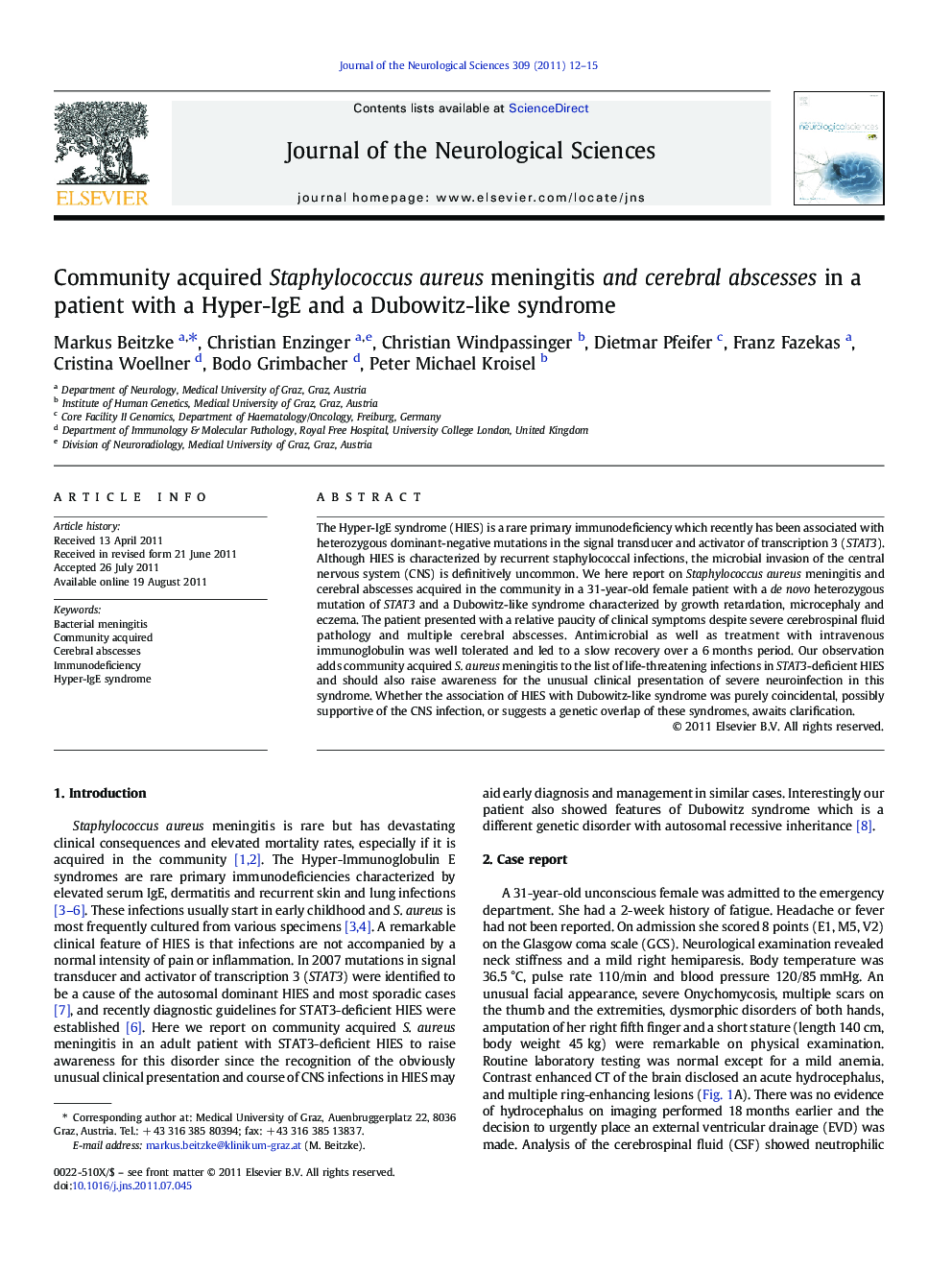| Article ID | Journal | Published Year | Pages | File Type |
|---|---|---|---|---|
| 1914142 | Journal of the Neurological Sciences | 2011 | 4 Pages |
The Hyper-IgE syndrome (HIES) is a rare primary immunodeficiency which recently has been associated with heterozygous dominant-negative mutations in the signal transducer and activator of transcription 3 (STAT3). Although HIES is characterized by recurrent staphylococcal infections, the microbial invasion of the central nervous system (CNS) is definitively uncommon. We here report on Staphylococcus aureus meningitis and cerebral abscesses acquired in the community in a 31-year-old female patient with a de novo heterozygous mutation of STAT3 and a Dubowitz-like syndrome characterized by growth retardation, microcephaly and eczema. The patient presented with a relative paucity of clinical symptoms despite severe cerebrospinal fluid pathology and multiple cerebral abscesses. Antimicrobial as well as treatment with intravenous immunoglobulin was well tolerated and led to a slow recovery over a 6 months period. Our observation adds community acquired S. aureus meningitis to the list of life-threatening infections in STAT3-deficient HIES and should also raise awareness for the unusual clinical presentation of severe neuroinfection in this syndrome. Whether the association of HIES with Dubowitz-like syndrome was purely coincidental, possibly supportive of the CNS infection, or suggests a genetic overlap of these syndromes, awaits clarification.
